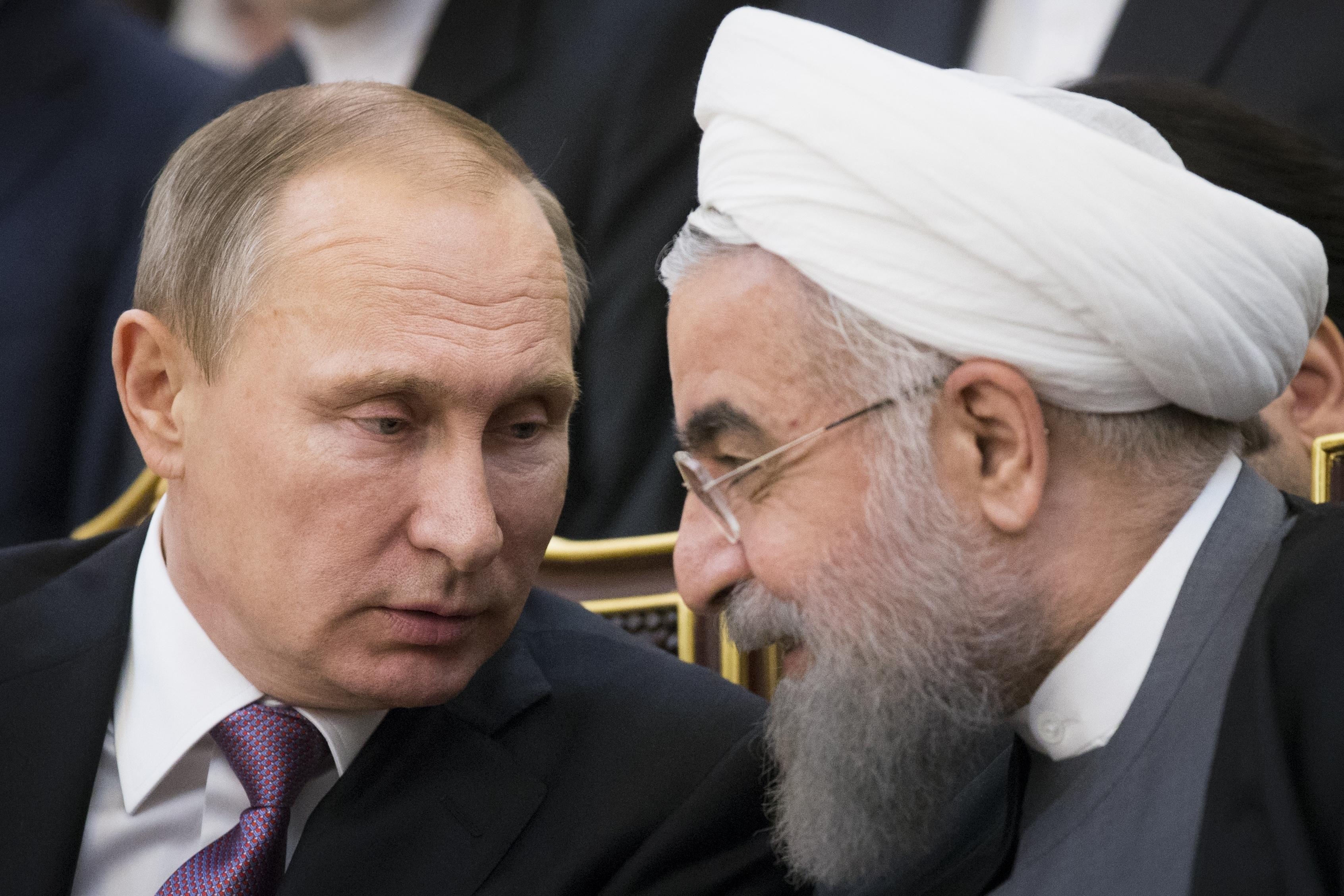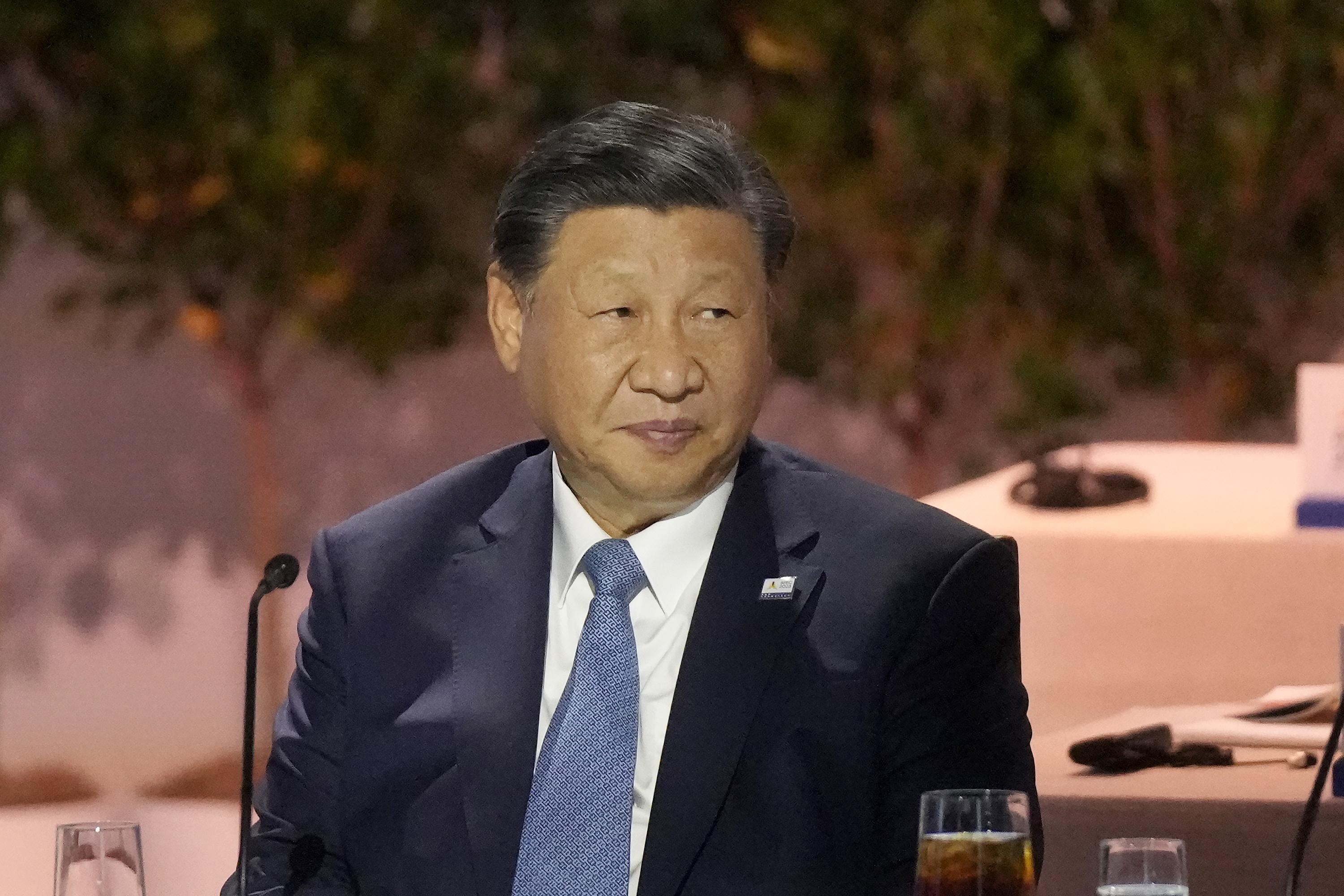Welcome to Threat Status, our weekly roundup of the biggest news inside the Pentagon, on the southern border, and around the world. Sign up to receive Threat Status each week from a national security reporting team headed by veteran Washington Times journalists Ben Wolfgang and Guy Taylor.
The National Security Agency and U.S. Cyber Command are girding for a wave of Chinese cyberattacks aimed at disrupting the 2024 presidential election.
The Times’ Ryan Lovelace reports that federal cyber officials, who were fixated on Russian hacking during the 2018 midterm elections and later on Iran’s emergence as a cyberthreat to elections, have mobilized an “Election Security Group” that’s examining how China may employ possible artificial intelligence as part of its attempts to disrupt the U.S. vote.
$10 billion more for Iran
President Biden’s nominee as the State Department’s No. 2 — Kurt Campbell — says that despite the administration’s years-long attempt to revive it, the 2015 Obama-era nuclear deal is finally dead.
Mr. Campbell won praise for the assessment during a hearing on Capitol Hill, but then drew Republican fire for defending the Biden administration’s move to free up to $10 billion for Iran as part of an agreement to allow Iraq, whose economy is closely tied to Iran, to buy electricity from its neighbor.
Mr. Taylor covered the hearing, as well as new evidence that Iran and Russia are advancing their strategic partnership. Iran is already giving Russia drones for its war in Ukraine, and officials now say Tehran and Moscow are pushing for mutual “military-technical cooperation,” a development that comes in the wake of a high-stakes summit at the Kremlin between Iranian President Ebrahim Raisi and Russian President Vladimir Putin.
Zelenskyy vows transparency
Ukrainian President Volodymyr Zelenskyy promised U.S. senators in a private meeting during a hastily arranged Washington visit that Kyiv will be open about how it uses U.S. aid as Congress weighs more billions of dollars in new funding for Ukraine’s war with Russia.
Mr. Wolfgang offers a deep dive on the Ukraine debate, highlighting how the Biden administration’s lack of a clear endgame strategy for the nearly two-year-old war is complicating the battle to approve the funds on Capitol Hill.
In a sobering report from the front line in Eastern Ukraine, Times special correspondent Guillaume Ptak interviewed Ukrainian soldiers who say they are starved for ammunition to match Russian firepower while the current U.S. aid package remains hung up and signs of war fatigue set in among other Western allies.
Ukraine is having some success, though. Military correspondent Mike Glenn reports on intelligence that it was “very likely” Ukraine recently shot down a Russian fighter-bomber with a surface-to-air missile in the northwestern Black Sea.
Hamas operative flips
As Israel continues its campaign to destroy Hamas, a key propagandist for the Palestinian militant group has turned on his comrades. Former Hamas communications chief Yousef al-Mansi said during questioning by Israel‘s Shin Bet security agency that the group’s current leaders are “crazy people,” and their decision to launch the Oct. 7 rampage into Israel has set back life in the Gaza Strip for 200 years.
A 14-minute video of the interrogation also shows Mr. al-Mansi claiming Yahya Sinwar, the Hamas military commander inside Gaza, has lost the support of those living in the Palestinian enclave.
U.S.-China ‘cold war’ in Balkans
Great-power tension between the U.S. and China is rising in the Balkans, with Beijing viewing the region as a strategic doorway for exerting its influence throughout the European Union. The Balkans are a “Chinese gate to Europe,” according to a new analysis that notes “Beijing wants to open this gate, while the U.S. wants to shut it.”
Similar Cold War-style jockeying is playing out across the Indo-Pacific, where Washington Times Asia Editor Andrew Salmon reports that Australia and Papua New Guinea have inked a new bilateral security agreement with an eye toward resisting rising Chinese influence.
Mr. Salmon separately reports on Beijing’s growing dominance over the once-boisterous democracy of Hong Kong, where only “patriotic” candidates were allowed to run in recent local elections. The contests, which resulted in record-low voter turnout, were the first held since China’s Communist Party imposed a stringent new security law in the onetime British colony.
Punting on FISA
The Senate and House are punting on sensitive legislation to overhaul a key provision of the Foreign Intelligence Surveillance Act (FISA), which allows the collection of massive amounts of electronic data by American spy agencies. With members from both parties locking horns over the legislation, lawmakers have agreed to push a decision off until 2024.
Meanwhile, the Defense Intelligence Agency has developed a new artificial intelligence strategy designed to stop powerful new technologies from bypassing their human users on decisions regarding war or peace. The new strategy was approved internally, according to DIA Chief Technology Officer Ramesh Menon, who is assuming the role of chief AI officer for the military intelligence agency.
In other Pentagon news, Col. Sean Riley, commander of the 102nd Intelligence Wing at Otis Air National Guard Base in Cape Cod, Massachusetts, was among 15 service members disciplined for dereliction of duty following an internal investigation into Airman 1st Class Jack Teixeira’s leak of classified information on an internet game chat site.
On the border
The Times’ Stephen Dinan reports that more people die while being arrested by the Department of Homeland Security’s border agency than any other branch of federal law enforcement, according to Justice Department data that showed a sharp rise in deaths in 2021, the first year under President Biden.
Opinion front
Regular columnist Clifford D. May calls on President Biden to tell Americans it was Hamas that broke the recent humanitarian cease-fire in Gaza and to emphasize that the “conflict could end tomorrow” if the group, which uses “men, women and children in Gaza as human shields,” were to release the remaining hostages it seized on Oct. 7.
Republican Reps. Michelle Steel and Virginia Foxx highlight the House’s passage of a new law aiming to rein in malign foreign influence at U.S. universities — drawing a connection between harassment of Jewish students at those universities and billions pouring into American academia from Iran, Qatar, China and other foreign nations.
Thanks for reading Threat Status. Don’t forget to sign up here and get it delivered to your inbox each week. And if you’ve got questions, Ben Wolfgang and Guy Taylor are here to answer them.











Please read our comment policy before commenting.